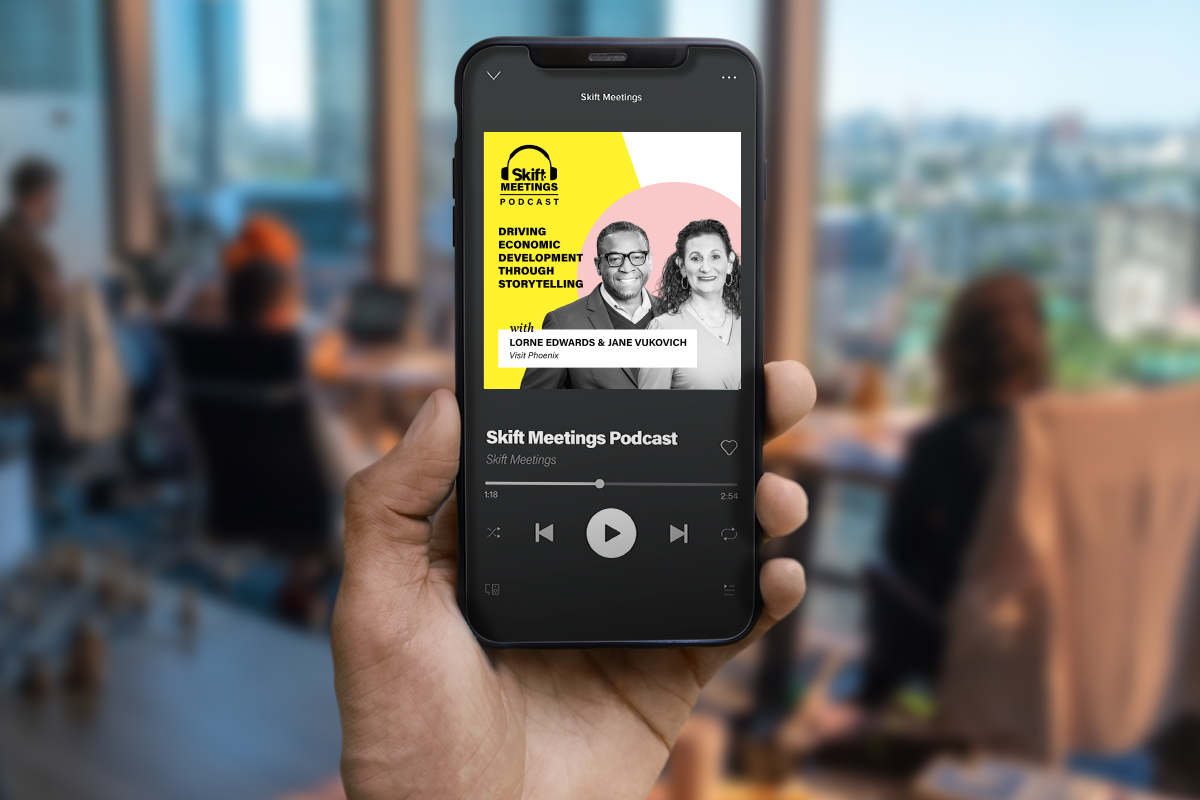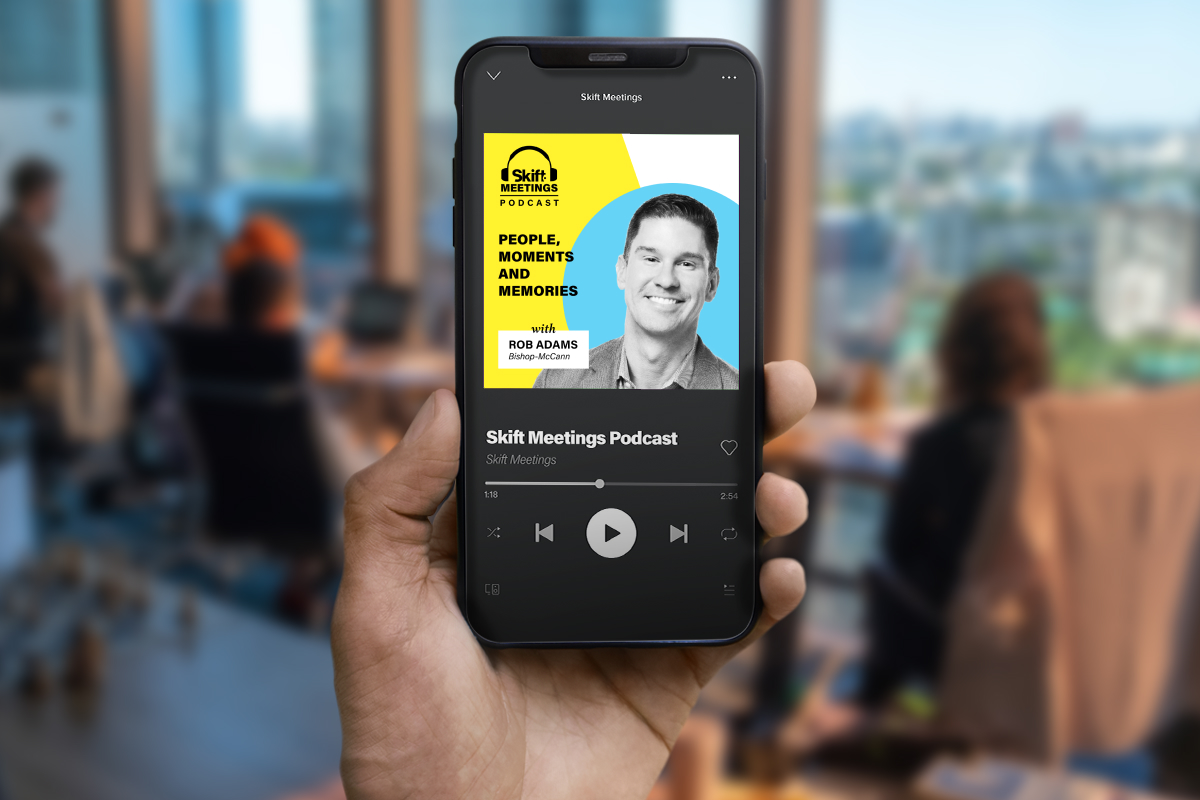Skift Take
In this episode of the Event Manager we discuss sustainable growth through innovation with Angeles Moreno, Country Manager Spain at AIM Group International.
Angeles Moreno has a long history within the hospitality and tourism industry, with his dad having been an entrepreneur and executive within the industry. Like her father, Moreno is also an entrepreneur, having launched her first company in her mid-twenties. Moreno describes herself as someone that is very curious and wants to push her own boundaries, which is why in 2014 she decided to pursue other opportunities, leading her to work with large organizations and continue her own learning. In 2017 she then launched a consultancy project, which had Moreno teaming up with other organizations to help them grow and develop. The consultancy firm grew and she was back to the role of managing a team and a business, which was not Moreno’s original plan, given that she had identified entrepreneurship was not where she wanted to be. Moreno believes that you need to go through different phases in your life otherwise you miss out, and as such she decided to go work for a large organization and be part of the overall team.
Subscribe to the Skift Meetings Podcast: Apple Podcasts | Spotify | Overcast | Pocket Casts | Google Podcasts | Amazon | RSS
Which leads us to today, where Moreno now heads up the Spanish division of AIM Group International, which is one of the biggest event, communication, and consultancy event management agencies in Europe, with over sixty year of experience and a history of leading innovation. The company specializes in congress management and pharmaceutical corporation management, with their core focus being professional conference organizing in many areas.
Having spent many years running her own business, for Moreno there are positives and negatives to being an entrepreneur, with the positives being that it can be a fascinating experience, you can build your own experience and it gives you some level of flexibility within the decision making process. However, one of the main drawbacks is that it can limit your own personal evolution. In her experience, you are always the person that the final decision lands with and are therefore involved in every element of the business, which isn’t always great. Some people are able to find good people to take up management positions and alleviate this from the founder, however it can be hard to do this.
The strong human impact is what Moreno believes puts an event in the ‘great’ category. This impact should be felt by all stakeholders that are part of the event, which is difficult and complicated to achieve and requires a lot of work on engaging all those involved and determining what they do and don’t expect from the event. Whilst this is a time consuming process with a heavy emphasis on data collecting, that it is what is required to achieve this goal. She also adds that events often focus on the production elements and less on the processes of change. The main legacy from an event should be the value it provides to its participants, regardless of who they are.
Moreno believes that sustainable, responsible growth rarely happens without innovation, however for this to take place you need to work human behavior into the process, teaching them how these developments will benefit them. Technology has helped accelerate the process, having allowed us to be more efficient and in turn providing more time for us to think. However, what organizations must be able to do is test and then learn from any failures, or successes, and continue this learning process in order to continue their growth and development. As humans, need to be open to rethinking that you may not be an expert in something and that there may be other ways of doing things.
There is often the question as to whether the event industry can talk about being sustainable when a core element of our mission is to gather people, often in a location that they are not already based in. Moreno argues that yes, the travel of these gatherings can have a negative impact which we need to improve upon, however there can be extremely positive impacts of gathering groups of people together when it comes to decision making, ideation and innovation, noting that humans that don’t meet in the same space do not make decisions in the same way, which she believes is a result of human nature
Whilst Moreno believes that in-person events are the most impactful for decision making purposes, she does point out that in many cases the host destination doesn’t always feel the positive impact of the event’s presence, and instead they may only experience disruption to their own daily routines, and this is something we need to work on, bringing both the event and the host destination together to both have benefits and values from being together.
Although virtual events have become a huge part of the event calendar for businesses, Moreno isn’t entirely convinced that online events are in fact events. She feels that we may need to consider creating a new, post-pandemic category that speaks to this shift. As many event professionals have begun to realize, it is important to create specific segments for online and in-person events as they have different objectives, values and purposes .They cannot be called the same thing, and as such they should also have different teams focusing on each of these categories.
As always, we dive deeper into these topics and so much more in the episode, so head to your favourite podcast app to listen now!
Want to ensure you never miss an episode? Then don’t forget to hit that subscribe button whilst you’re there.





